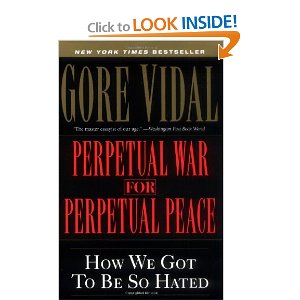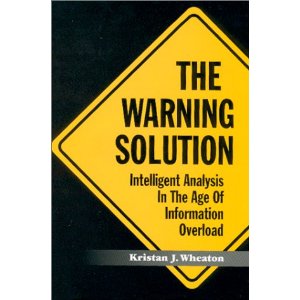Monty G. Marshall
This book is deeply important to our future, for it is the first over-all comprehensive look at the global reality of failed states, spreading non-state violence, and the emergence of complex emergencies where 90% of the casualties are civilian.Drawing on a wide-variety of databases and field studies around the globe, the author focuses the societal groups and their migration toward protracted violence in the context of failed states. He puts forward a theory on the diffusion of insecurity, how this leads to arrested development, and why, for very practical reasons, the more developed nations must devise new means of structured and focused intervention leading to the creation of peace.
The author does not advocate intervention willy-nilly–if anything, he joins Jessica Matthews, William Shawcross, and others in pointing out that incompetent interventions actually make matters worse–external actors and external resources have a way of prolonging internal conflicts rather than resolving them. Military forces, the ones most often used, are also the least effective–new combinations and new capabilities are needed.
He is especially effective at criticizing, in a very gracious but pointed manner, the institutionalist and realist schools that have never moved beyond sovereign states, political boundaries, conventional militaries, and a Euro-centric perspective.
He is much better than Fukiyama at dealing with reality, and the equal of Huntington in considering cultural clashes rooted in social identities and real-world resource difficulties.
I found two major observations in this work that merit broad repetition:
First, and the author gives due credit to the path-finding work of Ted Gurr and the Minorities at Risk project, there is an established pattern, world-wide, in which violent political action is always preceded by a period of nonviolent activity that was either ignored or repressed.
Second, once violence has been inculcated into a social group as the normative condition, there is a distinct loss of capacity to engage in meaningful exchanges, negotiation, etcetera. Outcomes become irrelevant, and as Ralph Peters has pointed out so often, war and conflict become the raison d'être rather than any kind of rational means to a political end.
Throughout the book, and worthy of a focused chapter or future article, there are comments on data, information, and analysis that are extremely valuable when embraced and integrated. Apart from numerous observations on the difficulty of obtaining reliable data on sub-state violence when the state is the normal analytical unit and also the repressor of information; the author has insights into how models drive what data is visible, collected, or accepted; and how the social units in conflict themselves become filters, channels, or barriers to communication.
The concluding recommendations for systemic policy call for a global arms moratorium; a migration from regional collective security arrangements to global normative security arrangements including an international stand-alone range of capabilities for monitoring, facilitating, and imposing non-violent conflict resolution; a general proscription of force by any nation or social group; regional associations or what he called a “complex federalism”; a decentralization of systemic authority, which really means a reduction of U.S. impositions in favor of localized influences with greater legitimacy; and a criminalization of individual acts of violence within war–the ending of war (or state sovereign direction) as an excuse for individual acts of violence and depravity.
If I had one criticism of the book–and in no way does this undermine the brilliance and utility of the work itself–it is that it does not include, either as a preface or as an appendix, a summary of the actual “state of the world” such as the author has helped create in the World Conflict and Human Rights Map project out of Leiden University (PIOOM). A description and enumeration of the 29 complex emergencies, 67 countries with hundreds of thousands of refugees, 59 countries with plagues and epidemics, 27 countries with massive famine–as well as the torture, child soldiers, and other distinct manifestations of the sub-state instability the author studies so well–would have helped the non-academic and policy readers to better grasp the urgent vitality of this seminal work.
The author and his insights deserve the very highest levels of attention, for all that he has done here is call into question the out-dated political science concepts and the policies–including the defense acquisition and force structure policies–of every so-called modern nation. The globe is burning, every President and Prime Minister is fiddling, and the author documents very clearly that this fire is headed straight for our homeland.












